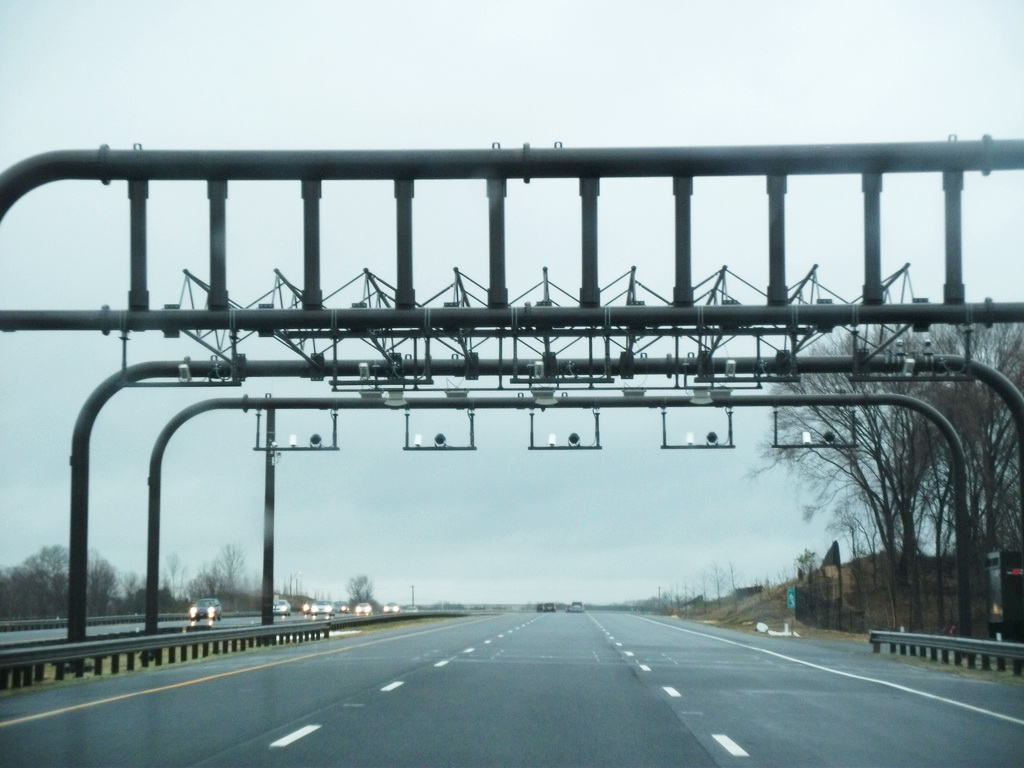By Daniel Menefee
For Maryland Reporter
A Senate bill to address “predatory” toll penalties, technical problems with transponders and poor customer service at E-ZPass will die in the Senate Finance Committee this session, its chairman said Tuesday, along with a watered down House version that delegates supported unanimously on Monday.
Instead, Senate Finance Committee Chair Thomas “Mac” Middleton said he is holding off legislation for a year to give the Maryland Transportation Authority time to improve customer service and pursue new contracts with vendors to operate Maryland’s toll system.
Middleton told Maryland Reporter last month that he would move the bill towards passage if he didn’t see a commitment from MDTA to fix the problems. He said his committee has since received a letter from MDTA spelling out the agency’s action plan.
The agency has come under fire mostly due to problems at the state’s two unmanned video toll roads, the Inter County Connector that connects Laurel to Gaithersburg and the I-95 express toll lanes in Baltimore County. The electronic tolls take snapshots of license plates to bill commuters who don’t subscribe to E-ZPass, or when subscribers’ transponders fail to register as they pass under the toll gantries. (see our earlier story)
Same old story, delegate says
“I’ve heard that story before that we’re going to give an opportunity for things to happen administratively but this has been going on for a long time in my district,” said Del. Mary Ann Lisanti, D-Harford County, after learning her bill, HB963, was DOA in the Senate. “I have hundreds and hundreds of complaints and I have citizens that have gone into bankruptcy [because of the fines].”
She said she was subject to fines herself when her credit card didn’t work properly to replenish her E-ZPass account.
Middleton’s decision also disappointed Sen. Roger Manno, sponsor of the Senate bill, SB139, whose Montgomery County district includes some of the ICC. He said his office has been inundated with constituents facing “toll bankruptcy.”
Manno said the powers the legislature enacted for MDTA in 2013 to deal with toll violators has “run amuck” and resulted in financial hardship for many of his constituents who use the ICC. Problems with credit card processing, a poor notification system and technical problems with transponders have resulted in fines in the “thousands of dollars.”
“Bureaucracy run amuck,” Manno says
“I don’t think there’s a single member of the Senate who would have voted for the [2013 measures] if we knew hundreds of thousands of Marylanders would be caught in toll bankruptcy under a predatory penalty system that MDTA has crafted,” Manno said on Tuesday after learning neither bill would move out of the Senate Finance Committee. “I think it’s unconscionable, I think it’s unfair, I think it’s government bureaucracy run amuck and it needs to stop.”
Motorists told the Senate Finance Committee on Feb. 1 that the problems have put them thousands of dollars in debt and unable to renew their vehicle registrations with the MVA.
The 2013 law gave MDTA the power to block registrations renewals and refer past due accounts to the state’s Central Collection Unit. Often motorists were not notified of any problems while they continued to drive and accrue additional tolls and penalties.
A $50 fine kicks in for each violation not paid after 45 days. After an additional 45 days the debt is transferred to Maryland’s Central Collection unit where a 17% fee is tacked on.
“There are 340,000 Marylanders whose accounts have been forwarded to CCU,” Manno said in February. “That’s one in every 18 Marylanders in collection at CCU for toll violations.”
Relief from state debt collectors
Lisanti’s bill would give MDTA authority to pull accounts back from CCU to resolve unpaid tolls with the motorist. Manno’s bill would have reduced fines to just 25% of the original toll and prohibit MDTA from referring any delinquent accounts to CCU.
“That you can get a $50 penalty for a 50-cent toll needs be stopped,” Manno said.
Sen. James Mathias, D-Worcester, said Middleton’s “wait and see” approach was not going to sweep the issue under the rug and that a bill could “absolutely” come back next year.
Mathias, chair of the transportation policy subcommittee, said he had to initially push the agency to get the commitment letter.
“We’re paying very close attention to their customer service and how they reorganize that department,” he said.
MDTA opposed the Senate bill because the toll fine revenue, $34 million, over the last two years has been included in revenue statements to bondholders and could affect the bond rating, an assertion some senators disputed.




How much do you want to bet that the company collecting those tolls contributes heavily to those legislators?
It’s actually a state agency, the Central Collection Unit, under the Department of Budget and Management.